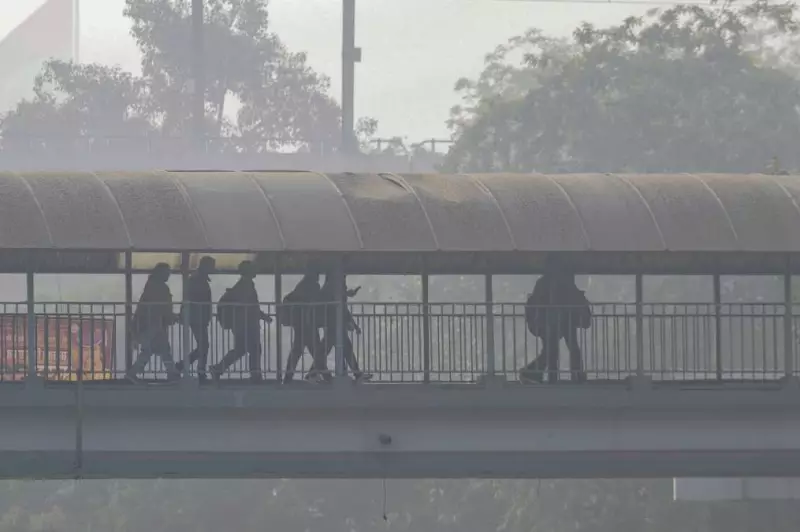
Delhi's atmosphere has taken a dangerous turn as the city's air quality plummeted to the severe category on Monday, November 17, 2024. The overall Air Quality Index (AQI) surged to a concerning 427, marking one of the worst air pollution episodes the capital has witnessed this season.
City Engulfed in Toxic Haze
The alarming deterioration in air quality has painted the city skyline in a grim gray palette, with visibility dropping significantly across multiple regions. The System of Air Quality and Weather Forecasting and Research (SAFAR) confirmed the severe classification, indicating that the pollution levels pose serious health risks to all residents, not just vulnerable groups.
Meteorological conditions have played a crucial role in this rapid decline. Calm winds and dropping temperatures have created a lid-like effect over the city, trapping pollutants close to the ground and preventing their dispersion. This meteorological phenomenon, combined with ongoing pollution sources, has created the perfect storm for hazardous air quality.
Area-Wise Pollution Breakdown
The pollution crisis has affected different parts of Delhi with varying intensity. Monitoring stations across the city reported consistently poor readings, with several areas experiencing even worse conditions than the city's average AQI of 427.
According to the latest data from the Central Pollution Control Board (CPCB), several monitoring stations recorded AQI values well above 400, firmly placing them in the severe category. The particulate matter levels, particularly PM2.5 and PM10, have exceeded safe limits by multiple times, creating immediate health concerns for the city's millions of inhabitants.
Health Implications and Advisory
Medical experts have issued urgent health warnings following the spike in pollution levels. Doctors are advising residents, especially children, elderly individuals, and those with pre-existing respiratory conditions, to avoid outdoor activities and strenuous exercise until air quality improves significantly.
The severe air quality category indicates that prolonged exposure could lead to respiratory illnesses and aggravate existing health problems. Health authorities recommend using N95 or N99 masks when going outside and using air purifiers indoors to create cleaner breathing spaces.
Environmental agencies are closely monitoring the situation and have indicated that weather changes in the coming days might bring some relief. However, until significant meteorological changes occur, the severe air quality conditions are likely to persist, requiring continued caution from Delhi's residents.





